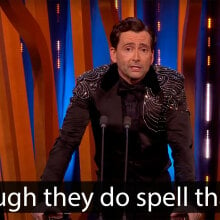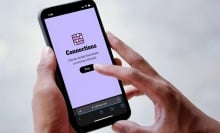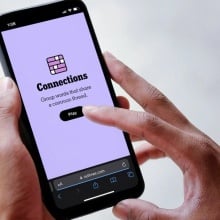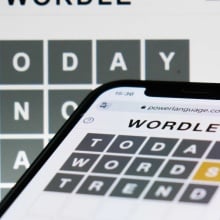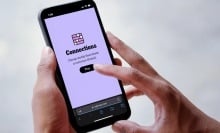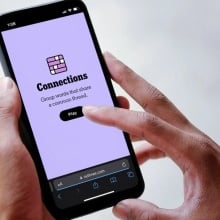In 2016, Zee Clarke was burnt out, and she knew there was no going back to her old life.
As a Black woman in a leadership role at a Silicon Valley tech startup, Clarke says she encountered a string of never-ending microaggressions. The Harvard MBA started to feel hypervigilant about how colleagues would interpret her every move. She worried any slip-up would give the company, valued at $1 billion, a reason to avoid hiring Black people in the future. While Clarke had similar experiences at previous startups, she had reached a worrisome turning point. She stopped eating and sleeping. Clarke's doctors said that something needed to change.
So she quit. Clarke traveled to India for yoga teacher training. She learned sound healing, breathwork, and Ayurveda, a natural system of medicine. When she returned to the U.S., Clarke began teaching yoga and breathwork, specifically with the hope of reaching Black people and people of color who've never felt welcome in the worlds of mindfulness and meditation.
Now Clarke is author of the forthcoming Black People Breathe, a beautifully-illustrated guide to a set of 33 mindfulness and breathwork practices. Clarke has meticulously curated this collection of coping skills, which includes techniques like alternate-nostril breathing, three-part breath, naming an emotion, putting a hand to the heart, and visualization.
Each practice corresponds to a common experience that threatens to snatch breath away from a Black person, like being mistaken for another Black colleague, being followed while shopping, and feeling the pressure of being the only Black person in the room.
"I can't breathe"
The idea for the book grew out of one of starkest examples of racial trauma: hearing a Black person, under deadly assault by police officers, cry out on a viral video recording that they couldn't breathe.
"Every time I heard, 'I can't breathe,' every time I saw footage of another murder, I stopped breathing," says Clarke.
When Clarke encountered yet another of these clips, she would notice her chest tighten and muscles tense. Her mental health suffered, too. Indeed, research shows that police killings of Black people are associated with worse mental health amongst Black Americans, as are trials in which the accused officer isn't convicted.
"These tools are for us as we wait for the world to change."
Clarke hopes that the breathwork and mindfulness strategies shared in Black People Breathe help readers develop skills for coping with stress, anxiety, and trauma related to racism. She also encourages readers to use these tools in situations that activate the sympathetic nervous system, the web of nerves that responds to stress and danger, prompting the fight, flight, or freeze reaction. Clarke wants people of color to be able to access calming techniques in pivotal moments instead of being provoked into escalation.
Don't mistake Clarke for a scold, though. She's not here to tell other Black people that they're responding to racism inappropriately — only that mindfulness and breathwork might help them find peace.
"These tools are for us as we wait for the world to change," she says.
3 ways to cope with racism and racial trauma
Clarke is well aware that some Black people and people of color haven't heard of mindfulness and breathwork practices. They may have never come across the subjects, or previously dabbled in them only to feel excluded by uncomfortable in-person experiences. Classic marketing material also tends to promote mindfulness and breathwork with images of white women in athleisure wear.
To assuage any skepticism, Clarke points to research indicating that racism takes a significant toll on people's physical, emotional, and psychological well-being, along with studies suggesting that mindfulness practices can reduce stress. However, some techniques, including breathwork, can be challenging for people with severe anxiety or a history of trauma.
In one pilot study of a mindfulness intervention, 36 Black women with trauma symptoms were taught techniques like body scanning, seated meditation, yoga, noticing pleasant and unpleasant events, and mindful communication. Most participants noticed improved anger management, enhanced awareness, feeling calm and relaxed, and better control over thoughts, emotions, and behaviors. Most also experienced decreased trauma symptoms, but a small number reported worse symptoms.
Dr. Inger Burnett-Zeigler, a clinical psychologist and associate professor of psychiatry and behavioral sciences at Northwestern University who conducted the study, previously told Mashable that she suspected the latter participants had so powerfully used avoidance and denial to cope with their trauma, that mindfulness only inflamed those feelings by bringing them to the surface.
In general, Clarke says some people might feel uncomfortable trying something new. But she urges anyone who's experienced extreme trauma and finds that mindfulness and breathwork trigger painful experiences to stop those practices and instead seek therapy.
Clarke shared with Mashable three of her go-to mindfulness strategies, which are included in Black People Breathe:
1. Naming an emotion and noticing it in the body
In Black People Breathe, Clarke lays out a comprehensive approach to mindfully deciding whether to watch video footage of a Black person being beaten or killed by police officers, and what to do during that viewing. Key to this several-step process is being able to name emotions that arise while watching and noticing how those feelings affect the body. For example, that could be anger that leads to a tightened jaw. Or exhaustion that makes one's limbs feel heavy.
Importantly, Clarke says readers can apply this same mindful approach to any form of online racism or discrimination they may encounter, like an unexpected critique of Rihanna's Super Bowl performance that seems to target her as a Black woman, or a stranger's racist remarks on your own social media post.
Naming the feeling and noticing it in the body, says Clarke, "creates a certain separation between you and that feeling, and it becomes less overwhelming."
2. Visualizations
Clarke relies on visualizations and affirmations to help correct the negative messages she receives from society about her self-worth. If someone hears enough times that they're not smart, or that they're aggressive, for example, "one might to start to believe those things about one's self," says Clarke.
To combat these messages with visualization, Clarke recommends putting your phone in "do not disturb" mode, setting a timer for five minutes, closing your eyes, taking a few deep breaths, and then imagining a world in which you feel safe, valued, and loved. Once the five minutes has ended, write in a journal everything you saw and experienced, and revisit it the next time you feel down.
3. RAIN of Self-Compassion
Clarke highly recommends a practice called RAIN, an acronym that can be short for recognize, allow, investigate, nurture. Created by meditation teacher Tara Brach, this version of the mindfulness meditation practice is designed to help people process difficult experiences. (Brach has previously spoken with Mashable about using RAIN to practice radical acceptance, and how RAIN can help with anger.)
Clarke likes RAIN particularly because it gives Black people, who may have been raised to suppress their feelings in order to survive, the opportunity to name intense emotions and practice self-compassion.
"RAIN is a very, very powerful practice when faced with really challenging emotions, and in the case of Black people, [those emotions are] often as a result of racism," Clarke says.
She's hopeful that readers will find relief from at least one of the practices in Black People Breathe.
"My goal here for Black people, and all people of color who read this, is I want them to know that while we can't control what happens outside of us, what we can control is how we feel, and we can do that through the breath," says Clarke.
If you're feeling suicidal or experiencing a mental health crisis, please talk to somebody. You can reach the 988 Suicide and Crisis Lifeline at 988; the Trans Lifeline at 877-565-8860; or the Trevor Project at 866-488-7386. Text "START" to Crisis Text Line at 741-741. Contact the NAMI HelpLine at 1-800-950-NAMI, Monday through Friday from 10:00 a.m. – 10:00 p.m. ET, or email [email protected]. If you don't like the phone, consider using the 988 Suicide and Crisis Lifeline Chat at crisischat.org. Here is a list of international resources.
Topics Racism Social Good





